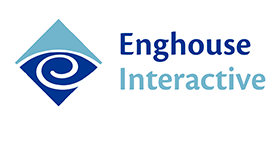With 14.6 million disabled people in the UK, it is vital that businesses provide them with accessible customer service.
As well as being the right thing to do, ensuring it is easy for those with disabilities to engage with your organisation increases revenues and improves corporate reputation.
Importantly, ensuring your contact centre environment is accessible to agents with disabilities provides access to a valuable, diverse talent pool.
Focusing on accessibility delivers three key benefits:
1. Improved Customer Service to All of Your Customers
Government figures show that 22% of the UK population have a disability. Essentially, if you make it difficult for them to use your products or interact with your organisation you are potentially excluding a fifth of your customers.
You need to focus on providing a customer experience that is accessible to everyone, regardless of age or ability. It is also important to consider different types of disability, both physical and mental.
To cater for all disabilities, you need to offer a range of contact options for people to reach and access your customer service.
For example, verbal communication isn’t possible for some customers. Think about offering text-based channels such as live chat or chatbots to enable real-time interactions. Alternatively, open up visual communications, such as video, where people can lip-read, instead of using the phone.
Customers with mental disabilities may find it equally hard to access customer service. Therefore, include self-service options or IVR functionality that doesn’t require a customer to speak to anyone.
Make sure your IVR offers the ability to enter responses via a phone keypad, as well as through voice, ensuring it is accessible to all. As with all self-service options, provide customers with ways of escalating to a live agent to avoid frustration.
For people engaging through your website make sure it meets international standards to enable individuals with disabilities to access it.
That includes captioning any videos, providing sufficient colour contrast between sections, and adding alt text for images. Also, your site needs to be compatible with assistive technology like screen readers and keyboard accessibility.
2. Provide an Accessible Working Environment for All
Over one in five of the working age population has a disability. However, disabled people are almost twice as likely to be unemployed as their non-disabled peers.
In an industry with high attrition rates, tapping into this talent pool brings multiple advantages. It provides access to new skills and experiences that can offer employers a competitive edge.
For example, many adults with autism are highly sought after in the technology field as they have higher than average abilities in pattern recognition and mathematics.
In addition, hiring people with disabilities can help your workforce better understand the challenges that those with disabilities face. This will also improve their empathy and understanding.
Accessibility is key when bringing those with disabilities into your contact centre team. The rise of remote working removes a key barrier to many people joining the workforce.
It means agents don’t have to travel and can benefit from the convenience of logging on from the comfort of their own home.
Ensure that your technology is designed around accessibility principles so that anyone can use it effectively.
Provide adapted hardware to meet specific needs and ensure the working experience is seamless and straightforward. You’ll benefit from access to a greater pool of talent by removing hurdles to people working within your customer service team.
3. Demonstrate Corporate Openness and Strengthen Brand Reputation
Consumers and employees increasingly want to engage with companies that have a strong social purpose.
Brand reputation and a genuine commitment to improving in areas such as diversity, inclusivity and sustainability are therefore vital to attracting and retaining customers and staff.
This boosts performance of your business, and also supports the creation of a more open, empathetic culture which takes into account the perspectives of the whole population.
Given the importance of empathy to customer service today, this will improve the experience for every customer.
Feedback from more diverse groups of customers will also help ensure that products and services meet their needs. This should also encourage innovation and increase revenues.
Inclusivity for All
Improving accessibility benefits businesses, those with disabilities, and wider society. Therefore, focus on accessible customer service, along with an accessible working environment, to better engage with customers and staff with disabilities.
This blog post has been re-published by kind permission of Enghouse Interactive – View the Original Article
For more information about Enghouse Interactive - visit the Enghouse Interactive Website
Call Centre Helper is not responsible for the content of these guest blog posts. The opinions expressed in this article are those of the author, and do not necessarily reflect those of Call Centre Helper.
Author: Enghouse Interactive
Published On: 7th Feb 2023
Read more about - Guest Blogs, Enghouse Interactive






 Enghouse Interactive delivers technology and expertise to help bring your customers closer to your business through its wide range of customer contact solutions.
Enghouse Interactive delivers technology and expertise to help bring your customers closer to your business through its wide range of customer contact solutions. 




























